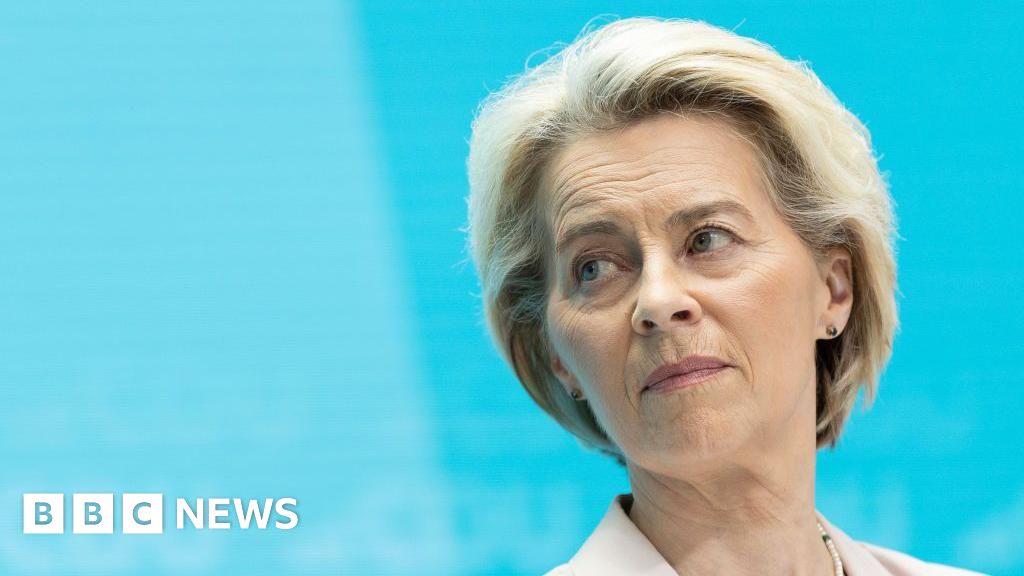European leaders will announce their picks for the EU’s top jobs at a two-day summit in Brussels, with current Commission President Ursula von der Leyen nominated for a second term.
The summit will also be attended by Ukrainian President Volodymyr Zelensky, who thanked EU leaders for starting membership negotiations with his country earlier this week.
Other issues on the agenda include security and defence, with leaders from Poland and the Baltic countries asking the EU for funds to build a defense line along their border with Russia.
Earlier this week, it emerged that six EU leaders had reached a consensus on the names to put forward, each coming from one of the three parties that dominate the European Parliament.
They are:
- Ursula von der Leyenof the center-right European People’s Party (EPP) for a second term as president of the European Commission
- Former Portuguese Prime Minister Antonio Costa of the Social Democratic Party (S&D) for president of the European Council
- Prime Minister of Estonia Kaja Kallas of centrist Renew Europe for the role of EU foreign policy high representative
The six EU leaders who negotiated the names also represent the EPP, the S&D or Renew.
They were Kyriakos Mitsotakis of Greece, Donald Tusk of Poland for the EPP, Pedro Sánchez of Spain and Olaf Scholz of Germany for the Socialists, and Emmanuel Macron of France and Mark Rutte of the Netherlands for Renew.
Italian Prime Minister Giorgia Meloni, who heads the right-wing European Conservatives and Reformists (ECR) bloc, was not included in the talks, even though the ECR has displaced Renew as the third-largest group in the European Parliament following European elections earlier this month.
In her speech to the Italian Parliament on Wednesday, Meloni angrily said that European voters had asked the EU to “take a different path than the one it has taken so far.”
Without naming names, he criticized “those who maintain that citizens are not mature enough to make certain decisions and (who believe) that oligarchy is essentially the only acceptable form of democracy.”
Earlier this week, Hungary’s Viktor Orban also expressed discontent with other EU leaders.
In his Article X, Orban said that the agreement between the EPP, S&D and liberals “contradicted everything the EU was based on”.
“Instead of inclusion, it sows the seeds of division,” Orban said, adding that top EU officials should represent “all member states, not just leftist and liberal ones.”
On Thursday morning, Meloni’s allies told reporters in Brussels that she had not yet decided whether she would support the new leadership team.
However, even with Orban’s possible backing, Meloni would not have the power to veto nominations for top posts, as doing so would require bringing in a majority of EU leaders.
But Meloni has gained prominent status among the European right, and von der Leyen is unlikely to want to antagonize her at the start of a second term.
Ahead of the summit, members of von der Leyen’s EPP group struck a conciliatory tone, with Polish Prime Minister Donald Tusk telling reporters: “It is not Europe without Italy and there is no decision without Prime Minister Meloni, it is obvious “.
Italy is also believed to be offered a senior post on the next commission in return for a backing at today’s summit. Every EU member state has a commissioner, but some – such as the economics or competition portfolios – are the most coveted.
In a letter to EU leaders on the eve of the Brussels summit, von der Leyen also promised to do more to tackle illegal migration, which is one of Meloni’s main concerns.
If officially nominated as the preferred candidate of EU leaders for the presidency of the European Commission, Ms von der Leyen will then need to be approved by a majority of members of the European Parliament at a session likely to take place in mid-July.
Ms von der Leyen will have the support of all 190 members of her EPP group, but will also need to enlist the support of other political groups to achieve a majority of 361.
